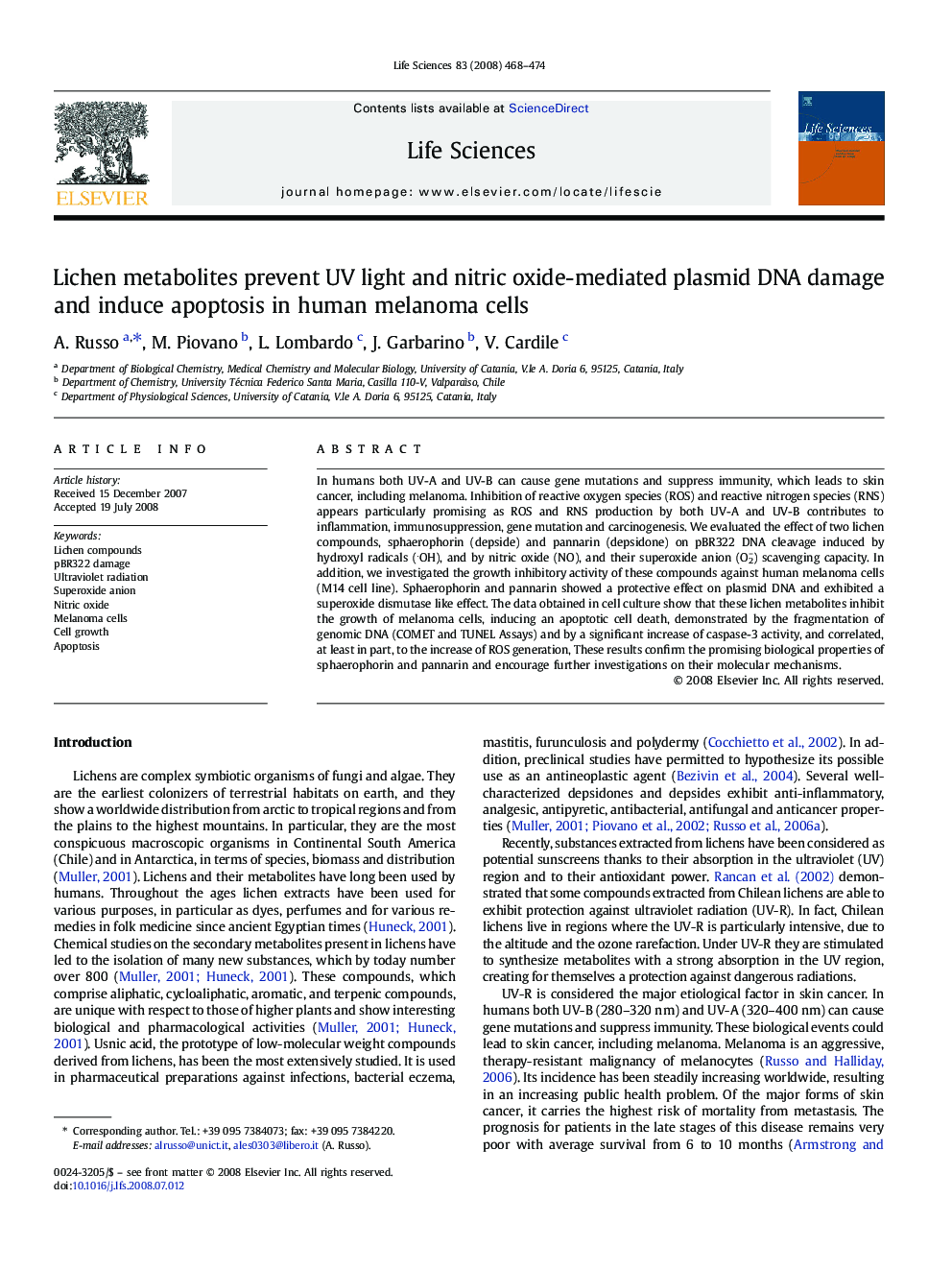| کد مقاله | کد نشریه | سال انتشار | مقاله انگلیسی | نسخه تمام متن |
|---|---|---|---|---|
| 2552276 | 1560743 | 2008 | 7 صفحه PDF | دانلود رایگان |

In humans both UV-A and UV-B can cause gene mutations and suppress immunity, which leads to skin cancer, including melanoma. Inhibition of reactive oxygen species (ROS) and reactive nitrogen species (RNS) appears particularly promising as ROS and RNS production by both UV-A and UV-B contributes to inflammation, immunosuppression, gene mutation and carcinogenesis. We evaluated the effect of two lichen compounds, sphaerophorin (depside) and pannarin (depsidone) on pBR322 DNA cleavage induced by hydroxyl radicals (OH), and by nitric oxide (NO), and their superoxide anion (O2−) scavenging capacity. In addition, we investigated the growth inhibitory activity of these compounds against human melanoma cells (M14 cell line). Sphaerophorin and pannarin showed a protective effect on plasmid DNA and exhibited a superoxide dismutase like effect. The data obtained in cell culture show that these lichen metabolites inhibit the growth of melanoma cells, inducing an apoptotic cell death, demonstrated by the fragmentation of genomic DNA (COMET and TUNEL Assays) and by a significant increase of caspase-3 activity, and correlated, at least in part, to the increase of ROS generation, These results confirm the promising biological properties of sphaerophorin and pannarin and encourage further investigations on their molecular mechanisms.
Journal: Life Sciences - Volume 83, Issues 13–14, 26 September 2008, Pages 468–474